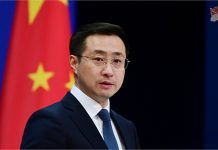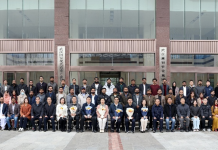BEIJING: The collective strength of the Shanghai Cooperation Organization is helping safeguard regional energy security, while Chinese technology is assisting participating countries in accelerating their energy transitions, officials and experts said.
Given strong mutual demand and a high degree of complementarity, energy cooperation has long been a priority among SCO countries, said Chen Yu, deputy director of the Institute of Eurasian Studies at the China Institutes of Contemporary International Relations (CICIR).
Sohail Khan, the SCO’s deputy secretary-general, said the countries attach great importance to energy cooperation and a series of energy-related outcome documents adopted within the framework carry significant weight.
He underscored the need to expand cross-border energy infrastructure, strengthen energy security, pursue a comprehensive and orderly transition, mobilize financing and enhance capacity building.
“Energy cooperation holds a strategic place in the SCO, as it serves as a ballast for regional cooperation and exemplifies the Shanghai Spirit,” said Ren Jingdong, deputy head of the National Energy Administration.
Ren said the SCO unites major energy producers, consumers and transit hubs, giving it an inherent basis for cooperation. Differentiated resource endowments and technological strengths reinforce and complement one another across emerging energy value chains.
In traditional energy, a host of high-quality cooperation projects, such as the China-Central Asia Gas Pipeline, the Yamal LNG project and the China-Russia east-route natural gas pipeline, have taken root in SCO economies. Cross-border oil and gas pipelines and interconnected power networks have largely taken shape, reinforcing regional energy security, Ren said.
Meanwhile, according to the China Institute of Water Resources and Hydropower Research, by the end of 2024, SCO countries’ installed renewable power capacity had reached about 2.31 billion kilowatts, which was roughly half of the global total and 14.5-fold of the level at the organization’s inception.
Deepak Khadka, Nepal’s minister of energy, water resources and irrigation, said innovation and transnational cooperation are becoming more vital. –The Daily Mail-China Daily news exchange item






